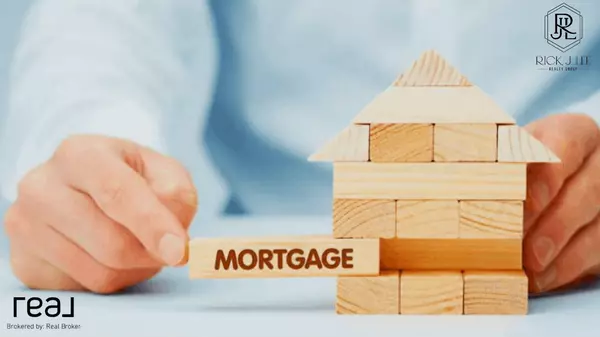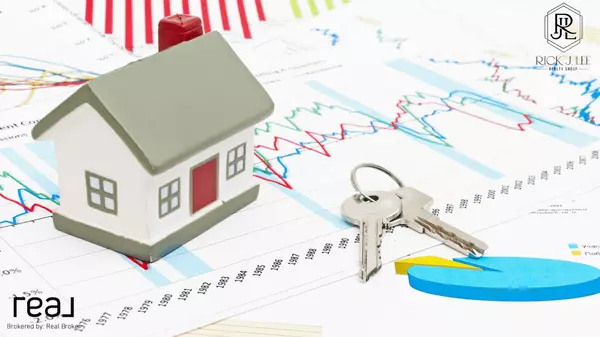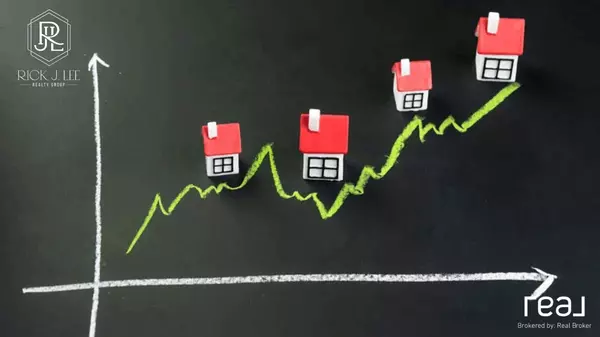What is a Home Inspection
Understanding the Basics
A home inspection is a meticulous examination of a property's condition, encompassing its structural elements, systems, and overall functionality. Think of it as a diagnostic check-up for your home, where a certified inspector plays the role of a detective, uncovering potential issues that might escape the untrained eye. From the foundation to the roof, every nook and cranny is scrutinized to ensure a comprehensive understanding of the property's health.
This process is not just a mere formality; it's a crucial step for both buyers and sellers. For buyers, it provides peace of mind by revealing any underlying problems before making a substantial investment. Sellers, on the other hand, can use this information to address issues proactively or adjust the listing price accordingly.
Why Do You Need a Home Inspection?
The need for a home inspection goes beyond mere due diligence; it's a strategic move that can save you from potential headaches in the future. Picture this: you fall in love with a charming house, but beneath the surface, there could be lurking issues like plumbing leaks, electrical hazards, or structural weaknesses. A home inspection acts as a preventive measure, helping you make an informed decision about whether to proceed with the purchase or negotiate for repairs.
Moreover, a thorough inspection can reveal if the property complies with local building codes and safety standards. This knowledge not only protects your investment but also ensures the safety and well-being of your future home.
The Anatomy of a Comprehensive Home Inspection
Now that we've established the importance of a home inspection, let's delve into the process itself. The inspector begins by examining the exterior, looking for signs of wear and tear, such as damaged siding, roof issues, or faulty drainage. Moving inside, attention shifts to the plumbing, electrical systems, and the overall structural integrity. Appliances, insulation, and ventilation are scrutinized, providing a holistic view of the property's condition.
Each component is meticulously documented in a detailed report, often accompanied by photographs. This report becomes a valuable resource, offering a snapshot of the property's health at the time of inspection and serving as a reference point for future maintenance or improvements.
The Benefits of Home Inspections
Peace of Mind for Homebuyers
Buying a home is a significant life decision, often accompanied by a mix of excitement and anxiety. A home inspection acts as a reassuring ally for homebuyers, offering a clear picture of what lies beneath the surface. The knowledge gained from an inspection allows buyers to enter into negotiations with confidence, armed with a comprehensive understanding of the property's strengths and potential weaknesses.
Beyond the financial aspect, a home inspection provides emotional peace of mind. Knowing that your dream home has undergone a thorough examination by a professional instills a sense of security, turning the process of buying a home into a more enjoyable and less stressful experience.
Negotiation Power for Sellers
For sellers, a pre-listing inspection can be a strategic move to enhance the marketability of their property. By addressing issues upfront or adjusting the listing price accordingly, sellers can navigate negotiations with transparency. A well-maintained home, backed by a comprehensive inspection report, gives sellers a competitive edge in a crowded real estate market.
Sellers can also use the inspection report as a marketing tool, highlighting the property's strengths and the steps taken to ensure its sound condition. This proactive approach not only attracts potential buyers but also establishes trust and credibility throughout the selling process.
Investment Protection
A home is not just a dwelling; it's an investment. Whether you plan to live in the property for years to come or sell it in the future, protecting this investment is paramount. A home inspection serves as a form of insurance, identifying potential issues early on and allowing for timely intervention.
By addressing minor problems before they escalate, homeowners can avoid costly repairs down the road. Additionally, the information gathered during a home inspection empowers homeowners to implement preventive maintenance measures, ensuring the longevity and value of their investment.
Choosing the Right Home Inspector
The Art of Inspector Selection
Selecting the right home inspector is a critical step in the home-buying or selling process. Not all inspectors possess the same level of expertise and attention to detail. When embarking on this journey, it's essential to look for a certified and experienced inspector with a keen eye for potential issues.
Credentials matter. A reputable inspector should be licensed, insured, and affiliated with professional organizations, ensuring they adhere to industry standards and a strict code of ethics. Don't hesitate to ask for references or read reviews from previous clients. The experiences of others can provide valuable insights into the inspector's professionalism and the thoroughness of their inspections.
Questions to Ask Your Home Inspector
Think of the inspector selection process as a job interview; you're hiring someone to assess one of the most significant investments in your life. Prepare a list of questions to gauge their experience, methodology, and communication skills. Ask about their inspection process, the time it takes, and what specifically will be covered.
Inquire about their experience with similar properties, especially if you're dealing with a unique or older home. A seasoned inspector understands the nuances of different architectural styles and construction methods. By asking the right questions, you not only ensure a thorough inspection but also establish open communication with your inspector.
Red Flags in Home Inspector Reports
While inspectors are trained professionals, they are not infallible. It's crucial to review the inspection report with a discerning eye. Look out for vague language or generic recommendations that could mask potential issues. If the report raises more questions than answers, don't hesitate to seek clarification from the inspector.
Pay attention to red flags such as major structural issues, safety hazards, or recurring problems. While no house is perfect, understanding the severity of issues can help you make informed decisions. If the report identifies significant issues, consider seeking the opinion of specialists or obtaining quotes for necessary repairs. Remember, the goal is not just to identify problems but to understand their implications and potential solutions.
Beyond the Inspection: Next Steps
Addressing Issues Found in the Inspection
So, your home inspection report is in hand, and it reveals a few surprises. What's the next step? While it's natural to feel a mix of emotions, from concern to frustration, addressing the issues systematically is key. Prioritize the identified problems based on their severity and potential impact on the property.
For significant issues, consider consulting with contractors or specialists to get a more accurate assessment of repair costs. Armed with this information, you can enter negotiations with a clear understanding of the financial implications. Keep in mind that not all issues may warrant immediate attention, but having a roadmap for future repairs can be invaluable.
Long-Term Maintenance Tips
A home inspection is not just a one-time event; it's a proactive step towards the long-term health of your property. Use the insights gained from the inspection report to create a maintenance plan. Regular maintenance not only prevents small issues from turning into major problems but also extends the lifespan of your home's components.
Create a checklist that includes routine tasks such as gutter cleaning, HVAC system maintenance, and roof inspections. Stay vigilant for signs of wear and tear, and address them promptly. By adopting a proactive approach to maintenance, you not only protect your investment but also ensure a comfortable and safe living environment for years to come.
Home Inspections as an Ongoing Process
Contrary to popular belief, home inspections are not reserved for real estate transactions. Consider periodic inspections as part of your homeownership routine. Schedule inspections every few years to catch potential issues before they become major problems. This ongoing process not only maintains the value of your property but also provides continuous peace of mind.
Think of it as preventive healthcare for your home. Regular check-ups allow you to detect and address issues early, minimizing the likelihood of unexpected and costly repairs. It's an investment in the longevity of your home and, by extension, your overall well-being.
In conclusion, a home inspection is not merely a checkbox on the path to homeownership; it's a holistic exploration of your property's past, present, and future. By understanding the basics, embracing the benefits, choosing the right inspector, and taking proactive steps beyond the inspection, you equip yourself with the knowledge to make informed decisions and ensure the long-term well-being of your home.
Follow me on Social Media
👋 Instagram 👉 https://www.instagram.com/rickjleehomes/
👋 Facebook 👉 https://www.facebook.com/RickJLeehomes
🎥 WATCH NEXT 👉 Subscribe for more Videos: https://www.youtube.com/channel/UCytj...
🔻CONTACT INFO🔻
🏠 WANT TO TALK REAL ESTATE? Fill out this contact form here https://www.rickjleehomes.com/contact
🏠 SEARCH FOR LONG BEACH AND ORANGE COUNTY HOMES FOR SALE https://www.rickjleehomes.com/
🏠 FREE HOME VALUATION https://www.rickjleehomes.com/evaluation
✔️ CHECK ME OUT ON GOOGLE https://g.page/r/CdWWiyYU6NKIEAE
Rick J Lee
Rick J Lee Homes
Realtor @ ΓEA⅃ Broker
DRE # 02130981
📞C:714-943-1598
📧rickjleehomes@gmail.com
🖥RickJLeehomes.com
Categories
- All Blogs (167)
- Aliso Viejo, California (2)
- Anaheim, Calfornia (3)
- Beach House (2)
- Best places for surfers (1)
- Bixby Knolls (1)
- Buena Park, California (2)
- Buying and Selling Real Estate (28)
- California (2)
- California Beach House (2)
- Cerritos, California (1)
- Costa Mesa, California (1)
- Current Market (1)
- Cypress, CA (4)
- Dana Point, California (1)
- Downey, California (1)
- Equestrian (1)
- Fountain Valley, California (5)
- FSBO (1)
- Fullerton, California (1)
- Fur Parents (1)
- Garden Grove California (6)
- History (2)
- Holiday in Long Beach (1)
- home (12)
- Home Improvement (1)
- home value (7)
- Huntington Beach (5)
- Irvine, California (3)
- La Habra, California (1)
- Laguna Niguel, California (1)
- Lake Forest, California (1)
- Lakewood Event (1)
- Lakewood, California (15)
- Lifestyle (1)
- Listing (1)
- Long Beach Events (1)
- Long Beach Neighborhood (1)
- Long Beach, California (19)
- Los Alamitos (1)
- Los Alamitos, California (1)
- Market Reports (7)
- Mission Viejo, California (1)
- Mortgage Lender (1)
- Moving to Aliso Viejo, California (2)
- Moving to Anaheim, California (3)
- Moving to Buena Park, California (2)
- Moving to California (11)
- Moving to Cerritos, California (1)
- Moving to Costa Mesa, California (1)
- Moving to Cypress, CA (3)
- Moving to Dana Point, California (1)
- Moving to Downey, California (1)
- Moving to Fountain Valley, California (4)
- Moving to Fullterton, California (1)
- Moving to Garden Grove, California (5)
- Moving to Huntington Beach (5)
- Moving to Irvine, California (3)
- Moving to Lakewood (2)
- Moving to Lakewood, California (4)
- moving to Long Beach, California (12)
- Moving to Los Alamitos, California (1)
- Moving to Los Angeles (1)
- Moving to Mission Viejo, California (1)
- Moving to Newport, California (3)
- Moving to Orange County, California (20)
- Moving to Orange, California (1)
- Moving to Placentia, California (1)
- Moving to Rossmoor, California (1)
- Moving to San Clemente, California (2)
- Moving to Seal Beach, California (2)
- Moving to Signal Hill, California (2)
- Moving to Stanton, California (1)
- Moving to Tustin, California (2)
- Moving to Westminster, California (2)
- Newport Beach, California (3)
- Orange County, California (8)
- Orange, California (2)
- Placentia, California (1)
- Real Estate (34)
- Real Estate Agent (25)
- Rossmoor, California (1)
- San Clemente, California (2)
- San Juan Capistrano, California (1)
- Saving Money (1)
- Seal Beach, California (3)
- Signal Hill, California (3)
- Social Media (1)
- Stagnation (1)
- Stanton, California (1)
- Success Story (1)
- surfing (1)
- Tips in Moving (1)
- Tustin, California (3)
- Westminster, California (2)
Recent Posts













